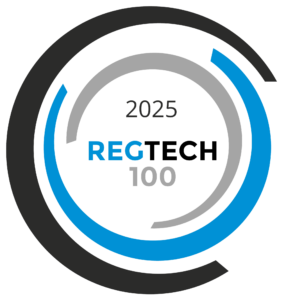The FCA’s robust approach to promoting RegTech has been noticeable, through initiatives like the Digital Sandbox Pilot and the FCA RegTech Forum the FCA has been encouraging firms to adopt technological solutions aiding their compliance efforts.
What can be seen as further encouragement to adopt RegTech is that the FCA has also engaged an independent firm to conduct research among financial services (FS) firms to understand how the FS industry perceives RegTech and, by extension, whether the FCA’s efforts were fruitful. It presented the findings in a recent analysis and opinion piece on the FCA’s Insight website ‘The Future of RegTech*- what do firms really want?’
The FCA concluded that the overall satisfaction with RegTech was very high (at 95%!) and therefore they were optimistic that the market that raised a not insignificant $8.3bn in funding in 2020 would keep developing and adding efficiency to compliance infrastructures.
However, FS firms, on the other hand, emphasised certain shortcomings that they felt were consistent among the RegTech vendors. The respondents have thus been looking for some reassurance from the FCA as to which products they should be adopting. The FCA, however confirmed that they would never be in a position to endorse or certify RegTech products as that would be in conflict with their competition remit.
The FS firms further expressed their concern that the RegTech vendors did not effectively communicate their offering, making the decision difficult for the buyers. It was noted in particular that no official taxonomy of the RegTech exists. It was also noted that smaller FS firms were keen on reaching out to the FCA with questions regarding RegTech solutions, but left without answers for the reasons stated above, whilst larger firms, having more resources, were conducting their own assessments of the RegTech products available, putting smaller players on disadvantage.
As a solution to the above the FCA suggested that an independent trade association should be considered, which could provide the appropriate certifications and taxonomy for the vast array of RegTech products and give a unified voice to vendors. This would allow for a smoother communication with the buy side.
The FCA report mentions an attempt to categorise the RegTech products by referring to the Global RegTech Industry Benchmark Report issued by EY in collaboration with Cambridge University Centre for Alternative Finance (https://www.jbs.cam.ac.uk/wp-content/uploads/2020/08/2019-12-ccaf-global-regtech-benchmarking-report.pdf). This work brought about the following industry categorisations for where RegTech is being used:
1) profiling and due diligence 2) reporting and dashboards 3) risk analytics 4) dynamic compliance and 5) market monitoring.
Although the five aforementioned categories are not official, they accurately reflect the current market offering and may give the buyers more clarity as to what is available for them.
The other obstacle to adoption that buyers identified was lack of ease of integration and interoperability with other products. The RegTech industry more often than not now offers APIs and potential customisation of their products therefore, there should may be an increase of satisfaction in this area. Having said that APIs are harder to build than most would expect and need constant updates too… the fragmentation in the market is therefore still an issue.
We can confirm first-hand the above points; when Leo conducted its own market analysis, we found that the number of direct competitors in our specific RegTech field of FCA compliance for asset managers, bankers and brokers is relatively small and fragmented. Not all our competitors offer what we offer either and often if they do it is with limited user access or less customisation. We fit in nicely with the categories identified above but not always fully which again taxonomy would help explain, see for example:
1. profiling and due diligence – Leo does AML questionnaires/reports and document collection all withing highly customisable report structures that allow third parties to deliver answers or documents as well as work flow management and task delegation but it is not a Web scanner for KYC purposes which is another area of RegTech that compliments what Leo does.
2. reporting and dashboards – Leo has the most complete reporting tools and related editing tools allowing for multi-jurisdictional adaptation and controls as well as work flow management, including the ability to duplicate parts of reports from one year to the next to reduce work time. Whilst dashboards are there, there is not yet a full analytical report across the various modules.
3. risk analytics – Leo has a risk mapping tool as well as a highly customisable register system with recorded history regarding any changes, however ‘risk analytics’ may mean different things to different people and may need to be reconciled with the overall range of risks a compliance team is responsible for
4. dynamic compliance – Leo is highly dynamic in that you can move modules, customise them, delegate tasks or document gathering. It saves about 40% of time year on year for compliance operators. However ‘dynamic compliance’ again is hard to interpret … and
5. market monitoring – This is another term that is not obvious. Is it referring to the market overall for benchmarking? In which case we don’t really know of any such providers, or is it assessing an internal compliance effort? Which would relate back to analytics …
Leo will continue to develop, and seem to continue in parts to be unique, notably to build standardised reports for management or compliance purposes and which include all aspects of staff reporting, collation of data in registers, or staff attestations and for dynamic compliance as Leo facilitates adaptation to regulatory changes as well as allows users to cross refer between various sections of the software. These features and functions give compliance professionals tools to comply with the FCA Handbook, AMF regulations, GDPR and any other regulatory framework thanks to its customisability. Leo is currently used in the UK, France and Hong Kong.
We value the analysis carried out by the FCA and appreciate the points raised. We would advocate for the creation of an association allowing easier access to RegTech for the FS industry as regulatory technology is the force for good among increasingly complex areas of financial compliance. This could be part of an existing compliance association too.
If you want to find out more about how Leo can help turn compliance into an asset, click on the link below.


